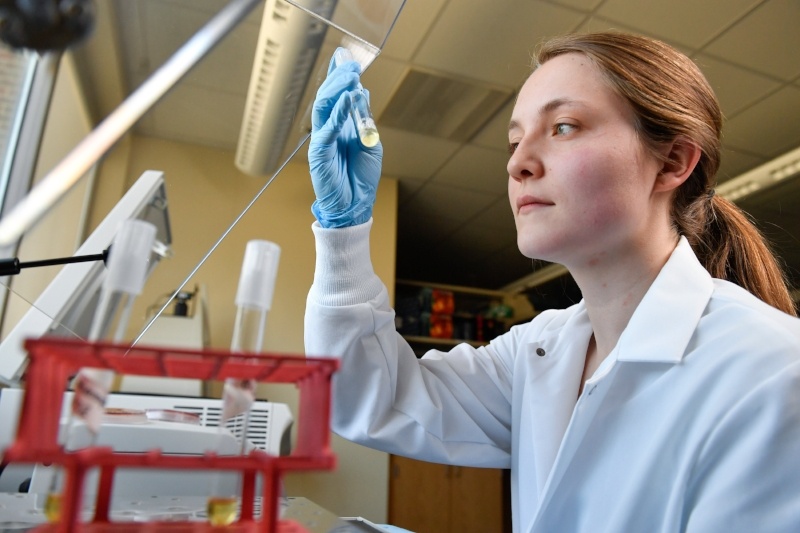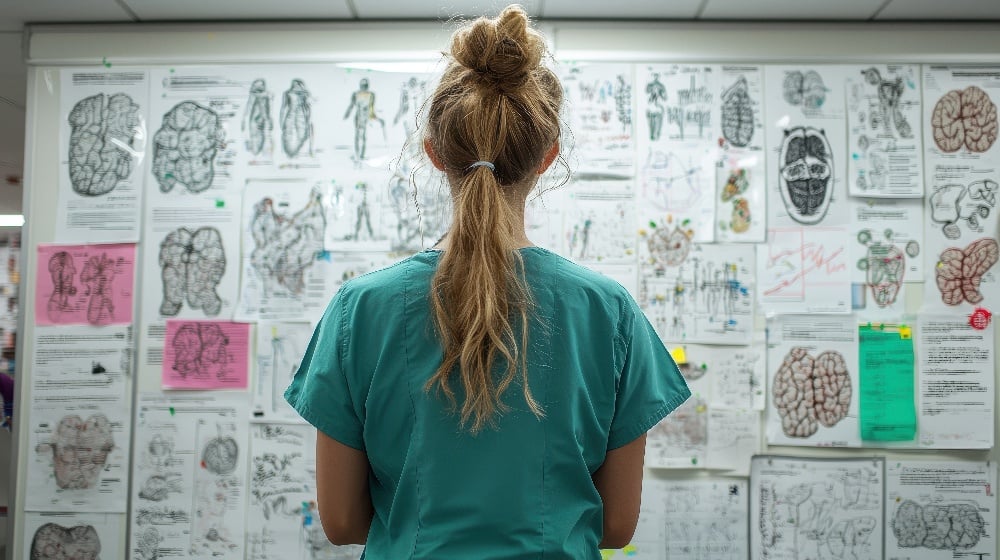West Virginia University’s Robotics program is led by talented professionals who lead, collaborate, and inspire graduate students who are passionate about the field of robotics engineering. Fueled by a spirit of innovation, the Robotics program is designed to perpetuate technological advancements in the field of robotics engineering.
We had the opportunity to speak with one PhD candidate at WVU who is participating in the Robotics program. Here's what he had to say regarding his experience in WVU's respected and competitive program.
What is your name, location, projected graduation year, and current role?
I’m Cagri Kilic. I live in Morgantown, WV. I came here from Istanbul, Turkey. I expect to graduate in 2021 with a PhD in Aerospace Engineering. I’m a Fulbright Scholar and Statler Fellow Graduate Research Assistant under Dr. Jason Gross advisory in The WVU Navigation Lab.
What attracted you to this graduate degree specifically?
When I started college, I wanted to be one of the players in the space robotics field. I believe space robotics technology dares us to do mighty things. I studied launch vehicles, orbital dynamics, and satellite design through my bachelor’s and master’s degrees. However, I realize that without a deep understanding of robotics, the creativity part is missing, which is the most crucial element of doing mighty things.
That is the reason why I’m pursuing an aerospace doctorate program focusing on robotics.
What was your area of research in the Robotics program?
Planetary Robots: I specifically work on localization improvements for Mars and Moon rovers through terramechanics and motion constraints.
What made you decide to join WVU’s Robotics program?
To pursue my academic goal, I needed three fundamental elements for my PhD studies.
The first one is a laboratory where I can learn how to build a planetary robot from scratch. WVU’s Robotics program has included exciting robotics laboratories where you can create, simulate, and test robots. Second, different types of robots that you can freely use to decide which type is the best for a specific approach. Along with the variety of the laboratories, there are all kinds of robots that you can find inside of these labs. Third, and the most important, a guidance/advisor who can help me if I am stuck on a problem. The program has prestigious, energetic, determined, and friendly professors. These factors made me decide to join WVU’s Robotics program.
What has been the most challenging element of the program?
The most challenging thing is hidden inside of the name of the program: robots.
As humans, we tend to think some daily activities can be done quickly. Imagine that you wake up with an alarm, stand up, turn around, walk, and find your way without hitting objects. In some cases, you can still find the bathroom without opening your eyes. These small things are hard for robots because they process the sensor data and react based on that processed data. Unfortunately, the sensor data is often noisy, complex, and difficult to process. The roboticists are the people who should understand that challenging process through mathematical equations, mechanical constraints, and physical conditions and then adequately integrate it into the robot’s brain.
What has been the most exciting element of the program?
When you overcome a challenge, it becomes an exciting thing. I still remember the moment that I received meaningful data from my first planetary rover prototype. It was something like hearing the first words from your child.
Tell me about your experience as a graduate assistant.
I decided to apply for one of the most prestigious fellowships at WVU, the Statler Fellowship. This fellowship is competitive to be awarded, and I had to do my best for the application. Luckily, I had enough material and ideas to convince the committee to allow me to secure the fellowship — thanks to one of WVU’s Robotics projects, NASA Mars Fast Traverse Rover Project, along with the other exceptional robotics projects. Therefore, being a graduate research assistant in a WVU Robotics project greatly helped me to secure the fellowship.
How has this experience affected your professional opportunities, and what do you hope to accomplish post-graduation?
The fellowship that I received helped me present my work in one of the most prestigious international robotics conferences with the robotics leaders from academia and industry. I had the opportunity to meet them, discuss my research, and learn more about the current developments in robotics.
I hope to have a postdoctoral degree about localization and terramechanics relations for planetary rovers in JPL/NASA after completing my PhD studies.
Please tell us about one faculty member who positively influenced your experience in the Robotics program.
We all like to see success stories, beautiful graphs, and seamless results. In my early research years, I didn’t want to push my robot’s algorithm beyond its limits. I knew that I would get unsatisfactory results, some breakdowns, or failures. One day, while I was presenting my results, my advisor asked me why I had near-perfect results. I was confused by his question, but he added and told me that we should try to break the algorithm. I didn’t understand why he wanted to see the imperfect results for the first time. However, pushing through the limits led me to think outside the box and helped me to find a way to improve my algorithm. That improvement led me to write my first robotics paper.
Joining WVU's Robotics Program:
Fueled by the academic innovation coming out of West Virginia University’s own graduate school community, the Robotics program at West Virginia University serves as a hub for research, knowledge-sharing, and data-driven innovation — all with the goal of advancing technology and improving the lives of others.
If you’re ready to advance your knowledge and transform your career in the field of robotics engineering, we encourage you to connect with us today.
Download West Virginia University's newest resource — A Field Guide for Future Robotics Engineers — a resource for STEM professionals interested in securing a career in the field of robotics.
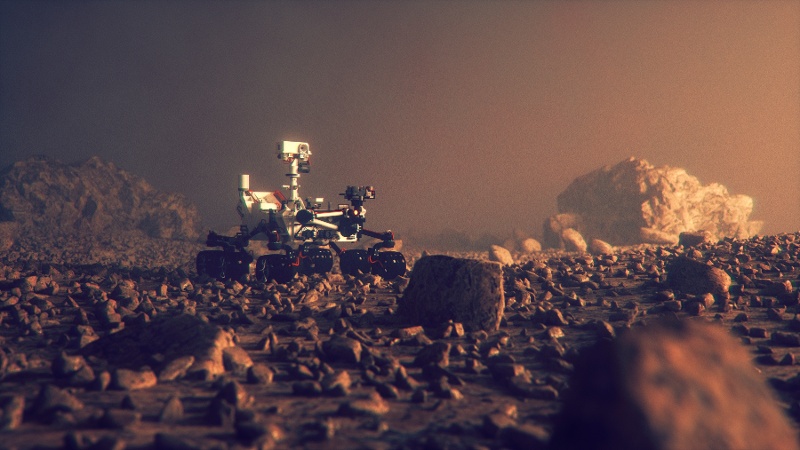

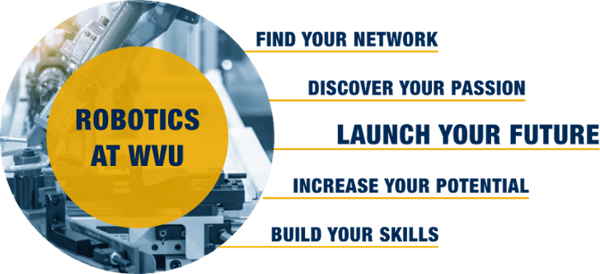
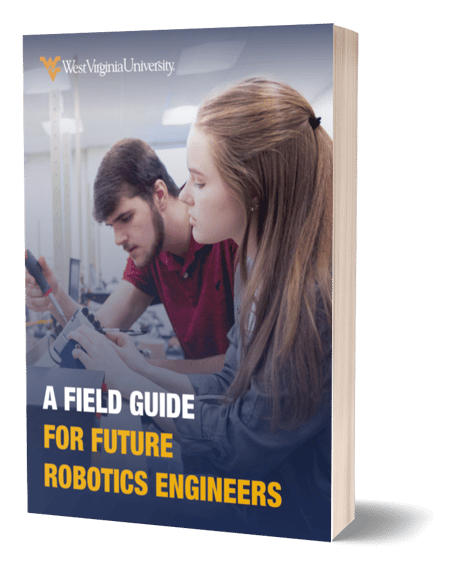

-489630-edited.jpg)
